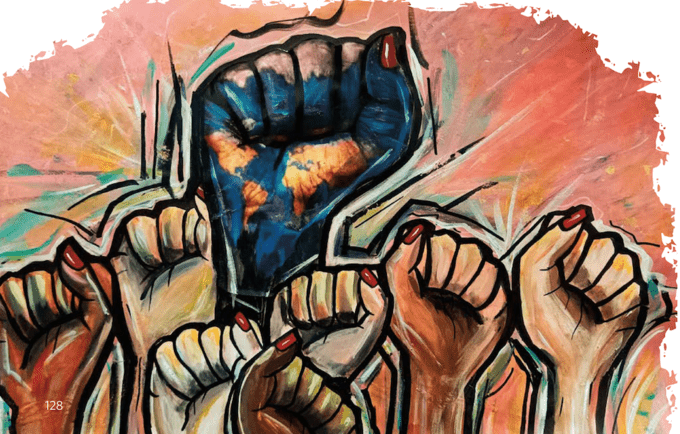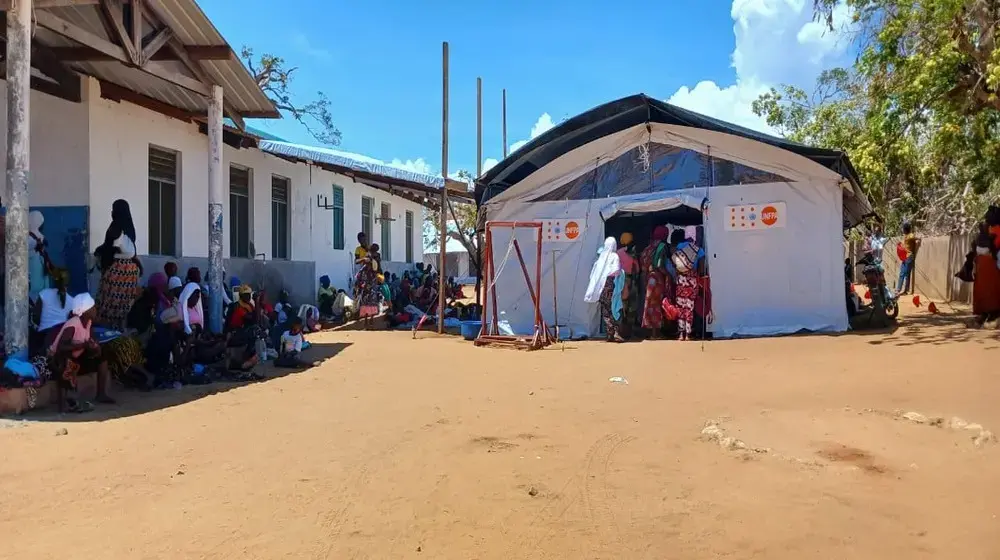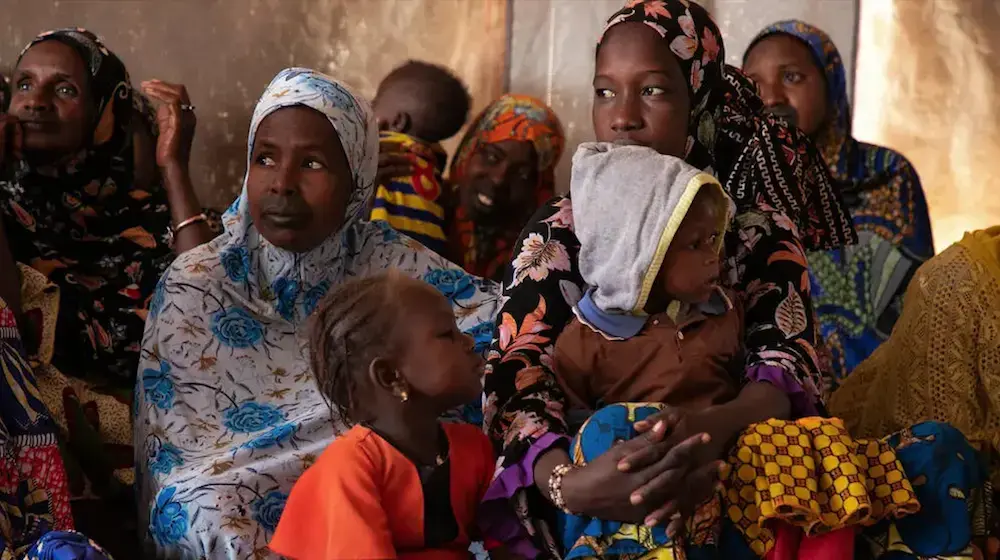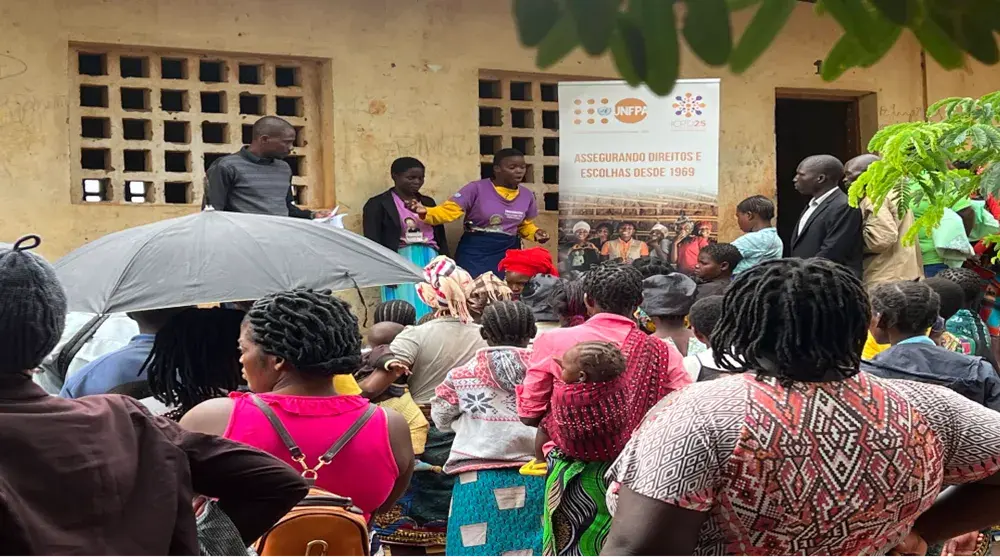Urgent, accelerated action needed to stop child marriage, and other practices that harm women and girls, according to new UNFPA report
Maputo, Mozambique/New York — Every year, millions of girls are subjected to practices that harm them physically and emotionally, with the full knowledge and consent of their families, friends and communities, according to the State of World Population 2020, released today by UNFPA, the United Nations sexual and reproductive health agency.
At least 19 harmful practices, ranging from breast ironing to virginity testing, are considered human rights violations, according to the UNFPA report, which focuses on the three most prevalent ones: child marriage, female genital mutilation, and extreme bias against daughters in favour of sons.
“Harmful practices against girls cause profound and lasting trauma, robbing them of their right to reach their full potential,” says UNFPA Executive Director Dr. Natalia Kanem. Of the harmful practices UNFPA is committed to ending, child marriage is among the most prevalent, undermining the rights and futures of 12 million girls each year worldwide. Child marriages are almost universally banned, yet they happen 33,000 times a day, every day, all around the world.
“Child marriage brings consequences that violate the basic rights of girls. Many of these violations are expensive and impossible to mitigate, correct or reverse—truncated education; serious impacts on health, often related to pregnancy and childbirth; the threat and actual experience of gender-based violence, and more. These combine to undermine the employment and earning potential of girls who are forced to marry young. This impact reverberates beyond the girl to perpetuate the cycle of poverty for her family and community,” says Andrea M. Wojnar, Resident Representative for UNFPA in Mozambique, referencing details from the report.
In Mozambique, household surveys (DHS 2011 and IMASIDA 2015) show that the country has one of the highest prevalence rates of child marriage in Africa and in the world, with 1 in 2 girls marrying before turning 18. The recently released 2017 census revealed that the prevalence of child marriage has only modestly decreased over a 20-year period.
The Government of Mozambique has recently demonstrated its commitment to the eradication of child marriage through Parliament’s approval of the 2019 Law for Preventing and Combating Premature Unions. However, continued efforts must be made to ensure that the provisions of the law cascade to all levels of society to ensure the root causes are being addressed and communities understand the toll these practices take on girls and the benefits that accrue to the whole of society by stopping them.
“Eliminating child marriage would have enormous benefits for not only the empowerment of girls, but also for the economic development of communities and nations,” asserts Ms. Wojnar.
Empowering girls to make their own healthy and informed choices is an essential part of ending child marriage. The Government-led Rapariga Biz initiative in Mozambique has reached hundreds of thousands of girls and trained 6,500 mentors, providing sexual and reproductive health information and services, mentorship, engaging schools and the justice sector, and using such techniques as a sexual health hotline, SMS messages and radio programmes at the relatively low cost of $120 per trained mentor and $10 per girl (Hilber and others, 2019).
Notably, Rapariga Biz has seen remarkable efforts to prevent child marriage with less than 2% of its programme participants marrying before the age of 19 while enrolled in the mentorship programme in two provinces, which rank among the provinces with the highest rates of child marriage in the country (61% in Nampula and 48% in Zambezia, according to DHS 2011).
Ending child marriage and female genital mutilation worldwide is possible within 10 years by scaling up efforts to keep girls in school longer and teach them life skills and to engage men and boys in social change. Investments totaling $3.4 billion a year through 2030 would end these two harmful practices and end the suffering of an estimated 84 million girls, the report shows.
“Eliminating child marriage would have enormous benefits for not only the empowerment of girls, but also for the economic development of communities and nations,” asserts Ms. Wojnar.
While progress has been made in ending some harmful practices worldwide, the COVID-19 pandemic threatens to reverse gains. A recent analysis revealed that if services and programmes remain shuttered for six months, an additional 13 million girls may be forced into marriage between now and 2030.
“The pandemic both makes our job harder and more urgent as so many more girls are now at risk,” Dr. Kanem says. “We will not stop until the rights, choices and bodies of all girls are fully their own.”
For information about the report & media and interview enquiries, please contact:
- Karlina Salu, +258 84-056-0246, jsalu@unfpa.org
- Jessica Lomelin, lomelin@unfpa.org





